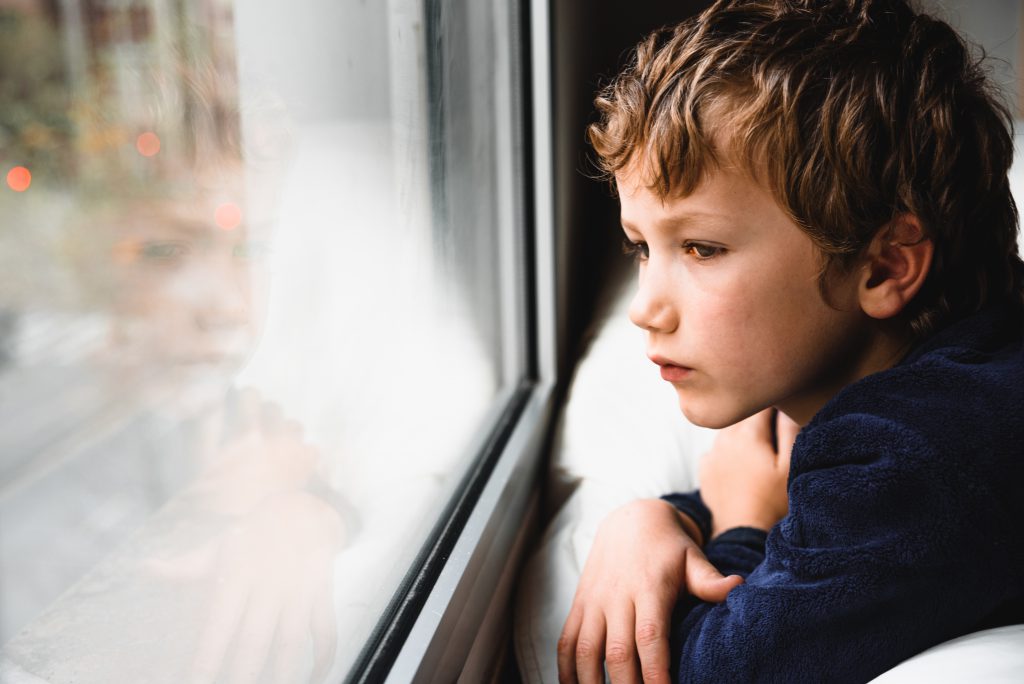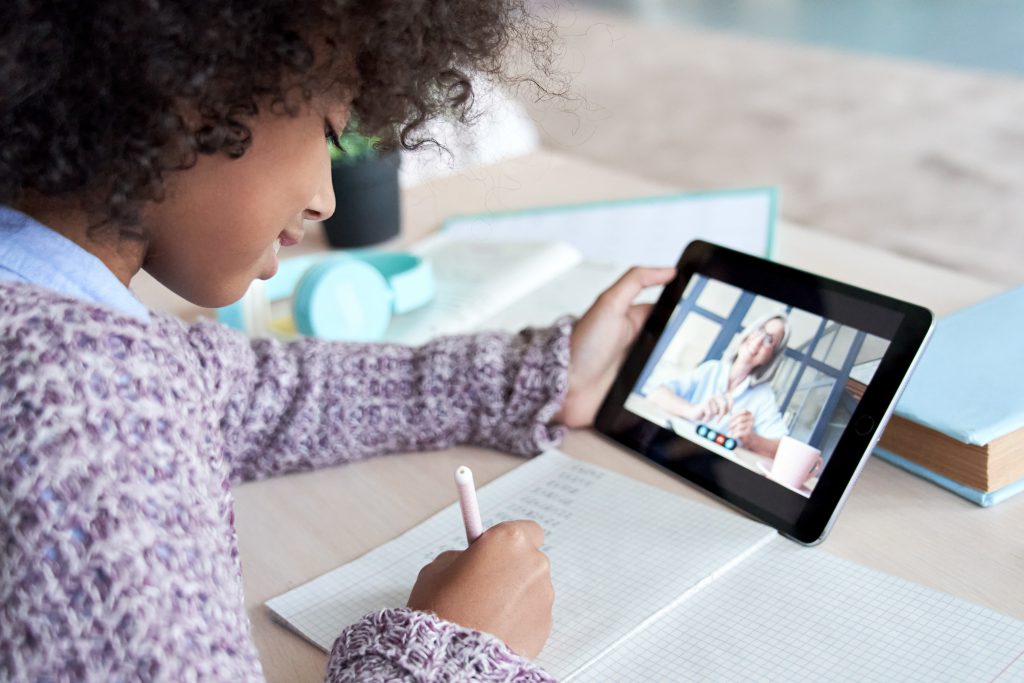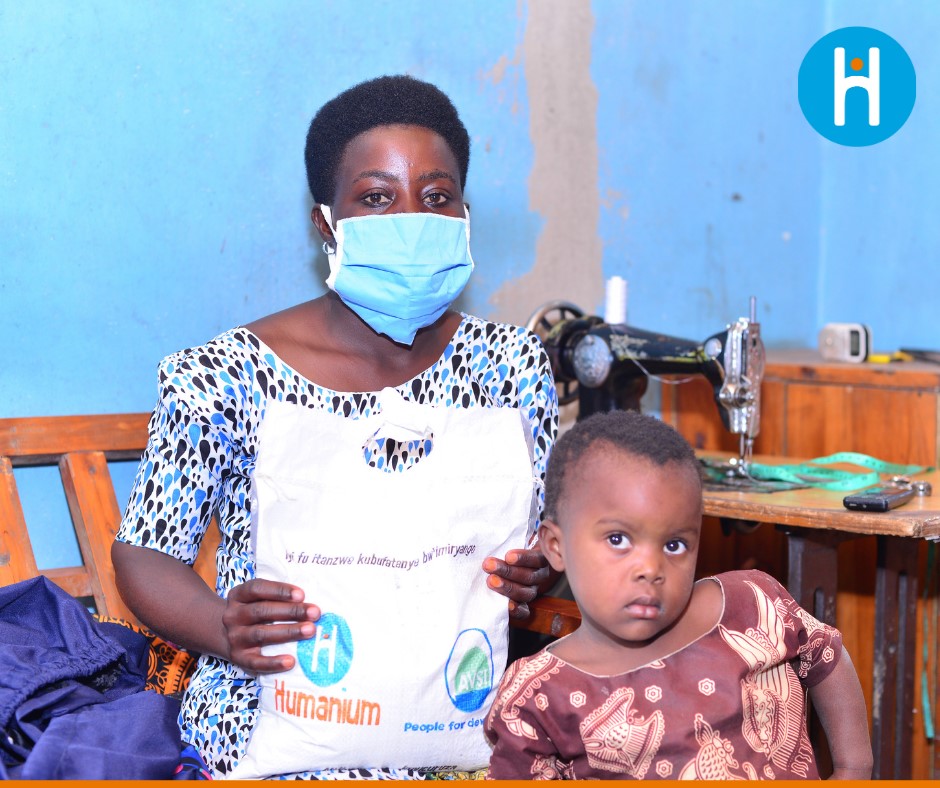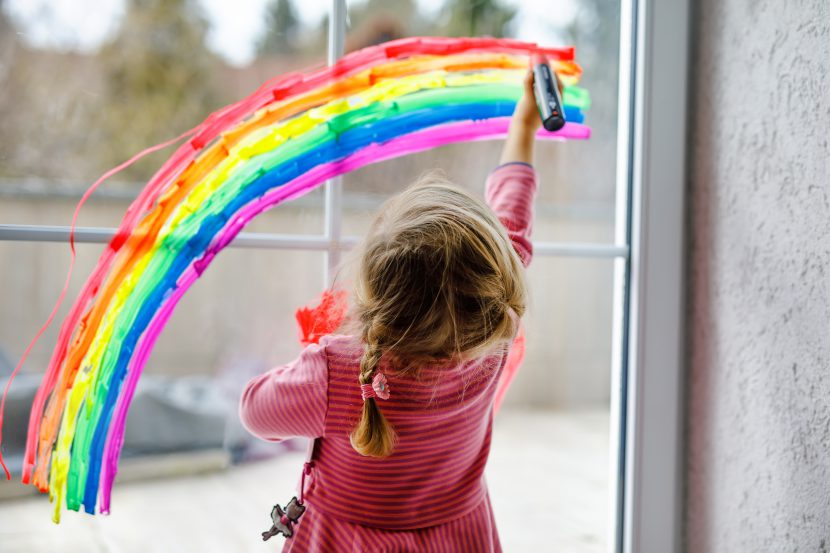It is an unignorable reality that (until recently) the seemingly invincible coronavirus brought about unprecedented changes in our daily lives on a global scale. Overnight, countries have started facing a rapid escalation of the spread of the virus and introduced lockdowns that panned weeks in some, and months in others, resulting in millions grappling to come to terms with a life of isolation.
Added to this was a constant increase in job uncertainties and layoffs, along with the rising fear and angst regarding the virus. This horrifying reality has been the foundation of an ever-growing conversation around the concern for our mental health. When coping mechanisms for adults are speckled with feelings of hopelessness and worry, we must ask ourselves – what happens to the world’s children and how has the pandemic affected their mental health?
Covid-19 and its Direct Impact on Mental Health
Mental health issues have been a worrying, unavoidable consequence of the pandemic. Ranging from the psychological impact of the lockdowns to the effects of financial concerns, unemployment and social exclusion, the pandemic’s effect on mental health will be long-term and far reaching. (Kluge, 2020)
In a study conducted by the International Labour Organization on Covid-19 and young people in Europe, it has been found that the pandemic has resulted in one out of two young people (aged 18-29 years) suffering from depression and anxiety (Kluge, 2020) . In the United States alone, there has been a four-fold increase in anxiety (depressive disorder) from pre-pandemic levels with about four in ten adults reporting their symptoms (KFF, 2021). Similarly, in April 2020, a study conducted in Ethiopia noted a three-fold increase in symptoms of depression as compared to estimations prior to the pandemic (WHO, 2020).

In a survey by the Indian Psychiatry Society ( IPS), it has been found that there is a 20% increase in the number of mental health cases since the lockdown along with the fact that at least one amongst five Indians have been affected (DW, 2020). In China, at the peak of the outbreak , more than one third of the population experienced symptoms of depression, insomnia or anxiety (Hernández, 2020). Despite a global rise in mental health concerns, the reality is a testament of the virus’ devastation- the pandemic has disturbed or halted critical mental health services in 93% of countries globally (WHO, 2020).
What Has the Pandemic Meant for the Mental Health of Children?
A Stop in Education
Education, one of the most important steppingstones in a child’s life has been significantly impacted by strict protocols being put in place to contain the spread of the virus. One year since Covid-19 struck the world, over 800 million students (more than half the world’s student population), continue to face significant troubles regarding their education (UNESCO, 2021). This comes as a result of full school shutdowns in 31 countries and reduced or part-time academic schedules in another 48 countries (UNESCO, 2021).
School closures that are a consequence of the pandemic face a risk of pushing an additional 72 million primary-school-aged children into learning poverty, which means that they will be incapable of reading and comprehending a simple text by the age of ten (World Bank, 2020) . Consequentially, there stands an increased risk for women and girls as school closures have made them more vulnerable to numerous types of abuse, ranging from transactional sex to forced marriages (UN , 2020). Lack of access to the necessary technological support for remote learning has resulted in 463 million children who are currently unable to use and benefit from broadcast and Internet-based remote learning policies (UNICEF, 2020).
Online Classes

As UNICEF Executive Director Henrietta Fore aptly put it, “Under the shadow of Covid-19, the lives of millions of children have temporarily shrunk to just their homes and their screens” (UNICEF, 2020). According to child psychologists interviewed from ten different countries, children are demotivated and lonely and are showing symptoms of hyperactivity and sensory issues as a direct result of their online classes (Bhatt, 2020) . In cases where children are already dealing with social anxiety, having the spotlight on them during an online class has only made them more self-conscious (Bhatt, 2020). As per their view, online classes are a major contributing factor to both- a rise in cases of anxiety and depression amongst teenagers, as well as hyperactivity and sensory issues in at least two out of five children (Bhatt, 2020).
The situation has worsened in countries like Indonesia where, according to development and clinical child and adolescent psychologist Grace E Sameve, “ there is no culture of children talking about their feelings with their parents” (Bhatt, 2020). Socio-economic disparity can also be a contributing factor to a child’s discomfort as seen in India, where child psychologist Joy Santhosh has found that children are often uncomfortable showing their homes during video calls with the fear of being judged by their peers from wealthier backgrounds (Bhatt, 2020). A typical occurrence in these households are power cuts, which in turn automatically log children out of their class and result in them feeling out of sync with the rest. Once they are able to log back on, they feel worried about being quizzed about something they involuntarily missed out on (Bhatt, 2020).
Online education has subjected the learners to an unavoidable reality – an unprecedented rise in screen time, necessary for children to be able to learn and stay connected to the outside world (UNICEF, 2020). The sad reality of this lies in the fact that, for children, excess screen time can oftentimes lead to anxiety, loneliness and depression and is commonly connected to progressively lower psychological wellbeing (The Center for Treatment of Anxiety and Mood Disorders, n.d.).
The Lockdown
Being outdoors, an essential part of childhood, is something that has been taken out of the lives of our world’s children due to strict lockdown protocol. Along with it being an activity which children generally look forward to, playing outside has numerous benefits that significantly impact a child’s development, ranging from improved behavioral and sensory skills to an increase in attention span (Danae Lund PhD, 2018) . Additionally, spending time in natural light is a stimulus for the pineal gland which is responsible for strengthening the immune system as well as making us feel happier (Danae Lund PhD, 2018).
In a survey that has included 1143 parents of children aged three to eighteen years old from Italy and Spain, and chronicled the emotional impact of the Covid- 19 quarantine-, 87% of parents have reported behavioral and emotional changes in their children during the quarantine. The most commonly observed changes were difficulty concentrating (76.6%), boredom (52%), irritability (39%), restlessness (38.8%), nervousness (38%), loneliness (31.3%), uneasiness (30.4%), and worries (30.1%) (Karen Dineen Wagner, 2020).
In What Way Can You Meaningfully Contribute?
Mental health plays a hugely important role in establishing one’s approach to life. The pandemic has resulted in the world enduring waves of fear, loss, and suffering. Although childhood brings about relatively fewer worries and problems as compared to adulthood, this time round, children have been robbed off a life they were once used to, and are left having to cope with the pandemic, the numerous rules that continue to shape their daily lives, as well as with the problems all of this brings to their mental health.
As an organization, Humanium is deeply invested in protecting, enabling, and raising awareness of children’s rights, and has worked on this extensively, even since the Covid-19 outbreak, through different projects keeping in mind the crucial importance of children’s mental health. As soon as the pandemic started to have an impact in children’s lives worldwide, Humanium, in cooperation with its partner, Hand in Hand India, facilitated the delivery of 500,000 hand sanitizers to many poor families in India.

Once the Covid-19 created a special emergency situation for the children in Rwanda, Humanium implemented a critical emergency relief project which has supported families in five regions and helped thousands of children and single mothers. Moreover, once the Residential Special Training Center in Madhya Pradesh, India, hosting 55 former girl child laborers got closed due to the pandemic, Humanium supported its local partner in establishing special centers where children got visited regularly by their teachers helping them continue their education. If you would like to support Humanium in its work helping children combat the effects of this worldwide pandemic, please consider sponsoring a child, making a donation or becoming a volunteer.
Written by Aditi Partha
Bibliography:
Bhatt, S. (2020, December 22). Tech . Retrieved from Economic Times.
Danae Lund PhD, L. (2018, June 26). CHILDREN’S. Retrieved from sanfordhealth.
DW. (2020). en/coronavirus-triggers-mental-health-crisis-in-india. Retrieved from DW.
Hernández, V. W. (2020, December 21). world/asia. Retrieved from nytimes.
KFF. (2021, February 10). Newsroom/coronavirus-Covid-19/press-release. Retrieved from KFF.
UN . (2020, August). development. Retrieved from the UN.
UNESCO. (2021, January 25). News. Retrieved from UNESCO.
UNICEF. (2020, April 15). romania/press-releases. Retrieved from Unicef.
UNICEF. (2020, September). Topic/education/Covid-19/. Retrieved from UNICEF.
WHO. (2020, May 14). News. Retrieved from WHO.
WHO. (2020, October 5). News. Retrieved from WHO.
World Bank. (2020, December 2). news/press-release. Retrieved from World Bank.


